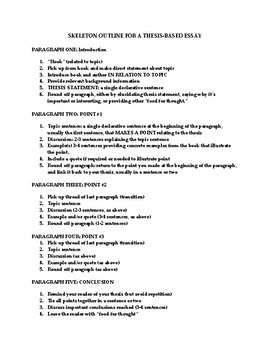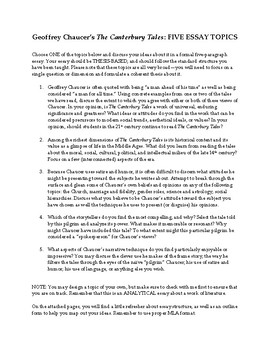
Jan 05, · The last Global Report on Trafficking in Persons states that more than different trafficking flows were detected during the previous few years. 51% of victims are women, 21% are men, and 20% and 8% are girls and boys accordingly. And one of the most worrying factors that directly impact on trafficking increase is the growth of refugees and migrants number Rape and Justice in the Wife of Bath’s Tale Carissa M. Harris (blogger.com@blogger.com) An essay chapter from The Open Access Companion to the Canterbury Tales (September ) Download PDF. Introduction. Chaucer’s Wife of Bath’s Tale often offends readers’ sense of justice. It follows an unnamed knight from King Arthur’s court who rapes a maiden, avoids legal punishment, and is Susan Wise Bauer wrote the book "Well Educated Mind" as a guide to the Classical Education you never blogger.com one covers Training Your Own Mind, The Act of Reading, Keeping a Journal, and Final Preparations for beginning to read
The Clerk's Prologue and Tale
The canterbury tales essays a constructed version of Chaucer himself is first discovered staying at the Tabard Inn in Southwark in Londonwhen a company of twenty-nine people descend on the inn, preparing to go on a pilgrimage to Canterbury. After talking to them, he agrees to join them on their pilgrimage.
Yet before the narrator goes any further in the tale, he describes the circumstances and the social rank of each pilgrim, canterbury tales essays. He describes each one in turn, starting with the highest status individuals. The Knight is described first, as befits a 'worthy man' of high status. The Knight has fought in the Crusades in numerous countries, and always been honored for his worthiness and courtesy. Everywhere he went, the narrator tells us, he had a 'sovereyn prys' which could mean either an 'outstanding reputation', or a price on his head for the fighting he has done.
The Knight is dressed in a 'fustian' tunic, made of coarse cloth, which is stained by the rust from his coat of chainmail. The Knight brings with him his son, The Squirea lover and a lusty bachelor, only twenty years old.
The Squire cuts a rather effeminate figure, his clothes embroidered with red and white flowers, and he is constantly singing or playing the flute. He is the only pilgrim other than, of course, Chaucer himself who explicitly has literary ambitions: he 'koude songes make and wel endite' line The Yeoman a freeborn servant also travels along with the Knight's entourage, and is clad in coat and hood of green. The Yeoman is excellent at caring for arrows, and travels armed with a huge amount of weaponry: arrows, a bracer arm guarda sword, a buckler, and a dagger as sharp as a spear.
He canterbury tales essays an image of St. Christopher on his breast. Having now introduced the Knight the highest ranking pilgrim sociallythe narrator now moves on to the canterbury tales essays, beginning with The Prioresscalled 'Madame Eglantine' or, in modern parlance, Mrs. She could sweetly sing religious services, speaks fluent French and has excellent table manners.
She is so charitable and piteous, that she would weep if she saw a mouse caught in a trap, and she canterbury tales essays two small dogs canterbury tales essays her. She wears a brooch with the inscription 'Amor vincit omnia' 'Love conquers all'. The Prioress brings with her her 'chapeleyne' secretarythe Second Nun. The Monk is next, an extremely fine and handsome man who loves to hunt, and who follows modern customs rather than old traditions.
This is no bookish monk, studying in a cloister, but a man who keeps greyhounds to hunt the hare, canterbury tales essays. The Monk is well-fed, canterbury tales essays, fat, and his eyes are bright, gleaming like a furnace in his head. The Friar who follows him is also wanton and merry, and he is a 'lymytour' by trade a friar licensed to beg in certain districts. He is extremely well beloved of franklins landowners and worthy women all over the town.
He hears confession and gives absolution, and is an excellent beggar, able to earn himself a farthing wherever he went. His name is Huberd. The Merchant wears a forked beard, motley clothes and sat high upon his horse.
He gives his opinion very solemnly, and does excellent business as a merchant, never being in any debt. But, the narrator ominously remarks, canterbury tales essays, 'I noot how men hym calle' I don't know how men call him, or think of him. The Clerk follows the Merchant. A student of Oxford university, canterbury tales essays, he would rather have twenty books by Aristotle than rich clothes or musical instruments, and thus is dressed in a threadbare short coat.
He only has a little gold, which he tends to spend on books and learning, and takes huge care and attention of his studies. He never speaks a word more than is needed, and that is short, quick and full of sentence the Middle-English word for 'meaningfulness' is a close relation of 'sententiousness'.
The Man of Law referred to here as 'A Sergeant of the Lawe' is a judicious and dignified man, or, at least, he seems so because of his wise canterbury tales essays. He is a judge in the court of assizes, by letter of appointment from the king, and because of his high standing receives many grants, canterbury tales essays.
Canterbury tales essays can draw up a legal document, the narrator tells us, and no-one can find a flaw in his legal writings. Yet, despite all this money and social worth, the Man of Law rides only in a homely, multi-coloured coat. A Franklin travels with the Man of Law. He has a beard as white as a daisy, and of the sanguine humour dominated by his blood.
The Franklin is a big eater, loving a piece of bread dipped in wine, and is described though not literally! as Epicurus' son: the Franklin lives for culinary delight. His house is always full of meat pie, fish and meat, so much so that it 'snewed in his hous of mete and drynke'. He changes his meats and drinks according to what foods are in season. A Haberdasher and a Carpenter, a Weaver, a Dyer and a Tapycer weaver of tapestries are next described, canterbury tales essays, all of them clothed in the same distinctive guildsman's dress.
Note that none of these pilgrims, in the end, actually tell a tale. A Cook had been brought along to boil the chicken up with marrow bones and spices, but this particular Cook knows a draught canterbury tales essays ale very well indeed, according to the narrator. The Cook could roast and simmer and boil and fry, canterbury tales essays stews and hashes and bake a pie well, but it was a great pity that, on his shin, he has an ulcer.
A Shipman from Dartmouth is next - tanned brown from the hot summer sun, riding upon a carthorse, and wearing a gown of coarse woolen cloth which reaches to his knees.
The Shipman had, canterbury tales essays, many times, canterbury tales essays, drawn a secret draught of wine on board ship, while the merchant canterbury tales essays asleep. The Shipman has weathered many storms, and knows his trade: he knows the locations of all the harbors from Gotland to Cape Finistere.
Canterbury tales essays shape is called 'the Maudelayne'. A Doctor of Medicine is the next pilgrim described, clad in red and blue, and no-one in the world can match him in speaking about medicine and surgery. He knows the cause of every illness, what humor engenders them, and how to cure them.
He is a perfect practitioner of medicine, and he has apothecaries ready to send him drugs and mixtures. He is well-read in the standard medical authorities, from the Greeks right through to Chaucer's contemporary Gilbertus Anglicus.
The Doctor, canterbury tales essays, however, has not studied the Bible. The Wife of Bath was 'somdel deef' a little deaf, as her tale will later expand upon and that was a shame. The Wife of Bath is so adept at making cloth that she surpasses even the cloth-making capitals of Chaucer's world, Ypres and Ghent, and she wears coverchiefs linen coverings for the head which must the narrator assumes have 'weyeden ten pound'.
She had had five husbands through the church door, and had been at Jerusalem, Rome and Boulogne on pilgrimage. She is also described as 'Gat-tothed' traditionally denoting lasciviousnessand as keeping good company, canterbury tales essays, she knows all the answers about love: 'for she koude of that art canterbury tales essays olde daunce' she knew the whole dance as far as love canterbury tales essays concerned!
A good religious man, A Parson of a Townis next described, who, although poor in goods, is rich in holy thought and work. He's canterbury tales essays learned man, who truly preaches Christ's gospel, and devoutly teaches his parishioners. He travels across his big parish to visit all of his parishioners, on his feet, carrying a staff in his hand. Canterbury tales essays is a noble example to his parishioners 'his sheep', as they are described because he acts first, and preaches second or, in Chaucer's phrase, 'first he wroghte, and afterward he taughte', canterbury tales essays.
The narrator believes that there is no better priest to be found anywhere. With the Parson travels a Plowman who does not tell a talewho has hauled many cartloads of dung in his time. He is a good, canterbury tales essays, hard-working man, who lives in peace and charity, and treats his neighbor as he would be treated.
He rides on a mare, and wears a tabard a workman's loose garment. A Miller comes next, in this final group of pilgrims now at the bottom of the class scale! He is big-boned and has big muscles, and always wins the prize in wrestling matches. There's not a door that he couldn't lift off its hinges, or break it by running at it head-first.
He has black, wide nostrils, carries a sword and a buckler shield by his side, and has a mouth like a great furnace. He's good at stealing corn and taking payment for it three times. But then, Chaucer implies, there are no honest millers. A noble Manciple a business agent, purchaser of religious provisions is the next pilgrim to be described, and a savvy financial operator. Though a common man, the Manciple can run rings round even a 'heep of lerned men'.
The Manciplehis canterbury tales essays ominously ends, 'sette hir aller cappe': deceived them all. The Reevecanterbury tales essays, a slender, choleric man, long-legged and lean "ylyk a staf", canterbury tales essays.
He knows exactly how much grain he has, and is excellent at keeping his granary and his grain bin. There is no bailiff, herdsman or servant about whom the Reeve does not know something secret or treacherous; as a result, they are afraid of him 'as of the deeth'. The Summoner is next, his face fire-red and pimpled, with narrow eyes. He has a skin disease across his black brows, canterbury tales essays, and his beard which has hair falling out of it and he is extremely lecherous.
There is, the narrator tells us, no ointment or cure, or help him to remove his pimples. He loves drinking canterbury tales essays which is as 'reed as blood', and eating leeks, onions and garlic. He knows how to trick someone. Travelling with the Summoner is a noble Pardonerhis friend and his companion in what sense Chaucer intends the word 'compeer', meaning companion, nobody knows and the last pilgrim-teller to be described. He sings loudly 'Come hither, love to me', and has hair as yellow as wax, which hangs like flaxen from his head.
He carries a wallet full of pardons in his lap, brimful of pardons come from Rome. The Pardoner is sexually ambiguous - he has a thin, boyish voice, and the narrator wonders whether he is a 'geldyng or a mare' a eunuch or a homosexual. The narrator writes that he has told us now of the estate canterbury tales essays classthe array the clothingand the number of pilgrims assembled in this company. He then makes an important statement of intent for what is to come: he who repeats a tale told by another man, the narrator says, must repeat it as closely as he possibly can to the original teller - and thus, if the tellers use obscene language, it is not our narrator's fault.
The Host is the last member of the company described, a large man with bright, large eyes - and an extremely fair man. The Host welcomes everyone to the inn, and announces the pilgrimage to Canterbury, and decides that, on the way there, the company shall 'talen and pleye' to tell stories and amuse themselves. Everyone consents to the Host's plan for the game, and he then goes on to canterbury tales essays it out.
What the Host describes is a tale-telling game, in which each pilgrim shall tell two tales on the way to Canterbury, and two more on the way home; whoever tells the tale 'of best sentence and moost solas' shall have supper at the cost of all of the other pilgrims, back at the Inn, once the pilgrimage returns from Canterbury.
The pilgrims agree to the Host's suggestion, and agree to accord to the Host's judgment as master of the tale-telling game. Everyone then goes to bed. The next morning, the Host awakes, raises everyone up, and 'in a flok' the pilgrimage rides towards 'the Wateryng of Seint Thomas ', a brook about two miles from London.
THE CANTERBURY TALES by Geoffrey Chaucer - FULL AudioBook - Part 1 of 2 - Greatest AudioBooks
, time: 10:25:47Childhood Memories Essay: 10 Brilliant Writing Ideas

Rape and Justice in the Wife of Bath’s Tale Carissa M. Harris (blogger.com@blogger.com) An essay chapter from The Open Access Companion to the Canterbury Tales (September ) Download PDF. Introduction. Chaucer’s Wife of Bath’s Tale often offends readers’ sense of justice. It follows an unnamed knight from King Arthur’s court who rapes a maiden, avoids legal punishment, and is Jan 05, · The last Global Report on Trafficking in Persons states that more than different trafficking flows were detected during the previous few years. 51% of victims are women, 21% are men, and 20% and 8% are girls and boys accordingly. And one of the most worrying factors that directly impact on trafficking increase is the growth of refugees and migrants number Part I: On the western shores of Italy lives Walter, the noble and gracious king who is handsome, young, and blogger.com loves his freedom and has refused to be bound by marriage; his subjects, however, long for an heir to the throne. One day, a delegation of lords of the kingdom humbly beseeches Walter to seek a wife

No comments:
Post a Comment